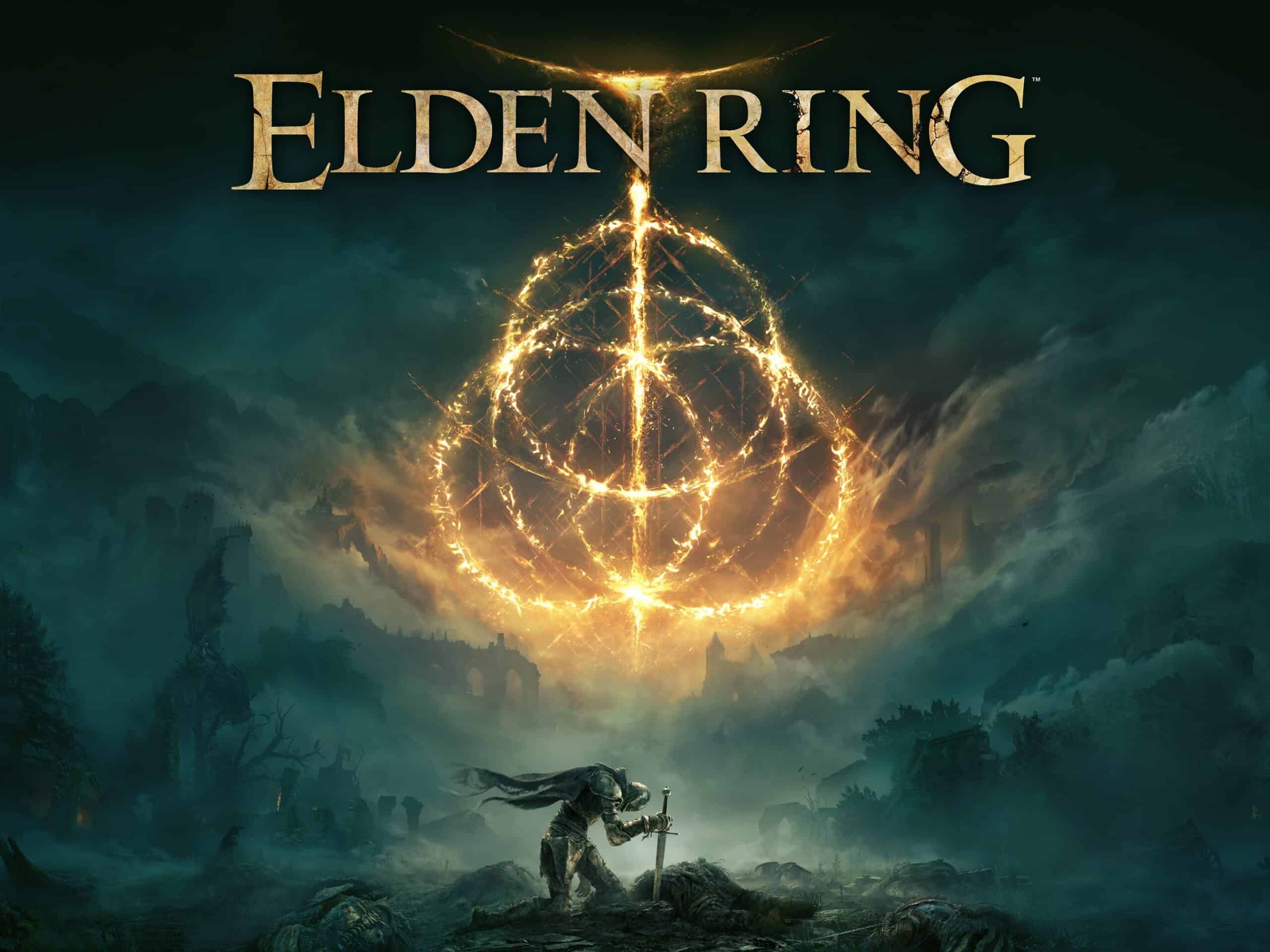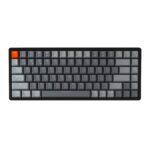Choosing the right class in Elden Ring can shape your entire gameplay experience. Each class offers unique strengths and weaknesses that cater to different playstyles. While all classes can become powerful with enough time and effort, some are better suited for beginners or specific builds.
The Vagabond is often considered the best starting class for new players in Elden Ring. It boasts high Strength, Dexterity, and Vigor stats, making it a versatile and forgiving option. The Vagabond’s heavy armor and balanced attributes allow players to withstand more hits while they learn the game’s mechanics.
For those seeking a more specialized approach, other classes shine in their own ways. The Astrologer excels at magic, while the Samurai is perfect for players who prefer a mix of melee and ranged combat. Your choice should align with your preferred playstyle and the type of character you want to create.
Best Starting Class in Elden Ring for New Players
Choosing your starting class in Elden Ring can be a daunting task, especially for newcomers to FromSoftware games. Each class offers a different starting point with unique stats, equipment, and potential playstyles. Here’s a breakdown of the best classes for new players:
1. Vagabond
- Strengths: High Vigor (health), Strength, and Dexterity. Starts with solid armor and a good shield.
- Weaknesses: Low Mind (FP), Intelligence, Faith, and Arcane.
- Playstyle: Well-rounded melee fighter. Good for learning the basics of combat and exploration.
The Vagabond is arguably the best all-around class for beginners. Its high Vigor makes it more forgiving in early encounters, while its balanced Strength and Dexterity allow you to experiment with various weapons. The solid starting armor and shield provide good protection as you learn the ropes.
2. Samurai
- Strengths: High Dexterity, decent Vigor and Endurance. Starts with a katana and a bow.
- Weaknesses: Low Strength, Intelligence, Faith, and Arcane.
- Playstyle: Agile melee fighter with ranged capabilities. Good for players who prefer a faster, more mobile combat style.
The Samurai excels in Dexterity-based combat. The Uchigatana is a powerful starting weapon, and the longbow provides a ranged option for picking off enemies or engaging from a distance. This class is a good choice for players who want to prioritize speed and precision.
3. Confessor
- Strengths: Balanced Strength, Dexterity, and Faith. Starts with a broadsword, shield, and healing incantations.
- Weaknesses: Low Mind, Intelligence, and Arcane.
- Playstyle: Hybrid melee fighter with access to healing magic. Good for players who want a mix of combat and support abilities.
The Confessor offers a good balance between melee combat and Faith-based magic. You can engage in close-quarters combat with the broadsword and shield while also utilizing healing incantations to restore health. This class is a good option for players who want a more forgiving experience with some magical support.
4. Astrologer
- Strengths: High Intelligence and Mind. Starts with a staff and basic sorceries.
- Weaknesses: Low Vigor, Endurance, Strength, and Dexterity.
- Playstyle: Ranged spellcaster. Good for players who prefer a magic-focused approach.
The Astrologer is the ideal choice for those who want to focus on sorcery. You start with a staff and two offensive spells, allowing you to engage enemies from a distance. This class requires a more cautious playstyle but can be very powerful once you master spellcasting.
Choosing the Right Class
Ultimately, the best class for you depends on your preferred playstyle. Consider these factors:
- Melee vs. Ranged: Do you prefer close-quarters combat or ranged attacks?
- Magic: Are you interested in using sorceries or incantations?
- Difficulty: Do you want a more forgiving class with high Vigor, or are you comfortable with a challenge?
Don’t worry too much about making the “perfect” choice. You can always respec your character later in the game if you want to try a different build.
Leveling Up Your Character
Once you’ve chosen your starting class, you’ll need to level up your character to improve their stats and become stronger.
How to Level Up
- Collect Runes: Runes are Elden Ring’s experience points. You gain runes by defeating enemies and bosses.
- Visit a Site of Grace: Rest at a Site of Grace and select “Level Up.”
- Spend Runes: Choose which attribute you want to increase and spend your runes to level it up.
Important Attributes to Consider
- Vigor: Increases your health.
- Mind: Increases your FP (used for spells and skills).
- Endurance: Increases your stamina and equip load.
- Strength: Increases your damage with strength-scaling weapons.
- Dexterity: Increases your damage with dexterity-scaling weapons.
- Intelligence: Increases your sorcery damage.
- Faith: Increases your incantation damage.
- Arcane: Increases item discovery and affects certain spells and status effects.
Key Takeaways
- The Vagabond class is ideal for newcomers due to its balanced stats and durability
- Each class offers unique strengths that cater to different playstyles
- Your starting class affects early gameplay but any build is viable with proper leveling
Analyzing Class Attributes and Combat Styles
Choosing the right starting class can significantly impact your early game experience in Elden Ring. Consider your preferred playstyle and choose a class that aligns with your strengths. Don’t be afraid to experiment and try different builds as you progress through the game. With patience and persistence, you can overcome any challenge and become the Elden Lord.
Elden Ring offers diverse classes with unique strengths and playstyles. Each class has specific attributes and equipment that shape their combat approach. Let’s explore the key features of different class types.
Strength and Melee Focus
Strength-based classes excel in close combat. The Hero and Warrior are prime examples. They have high Strength and Vigor stats. This makes them tough and powerful in melee fights.
Heroes start with a battle axe and leather shield. Warriors wield dual scimitars. Both classes can use heavy armor and big weapons like greatswords or halberds.
These classes are great for players who like to get up close and personal. They can take hits and dish out massive damage. Their high Vigor also means more health and better survival chances.
• Pros:
- High damage output
- Good survivability
- Can use heavy weapons and armor
• Cons:
- Limited ranged options
- Slower movement
Dexterity and Agility
Dexterity-focused classes like the Bandit and Samurai favor speed and precision. They have high Dexterity stats which boost their attack power with light weapons.
Bandits start with a knife and shortbow. Samurai begin with a katana and longbow. These classes excel at quick strikes and dodging attacks.
Dexterity builds are great for players who prefer a more agile playstyle. They can attack fast and parry enemy strikes. Their ranged weapons also give them an edge in certain situations.
• Key features:
- Fast attack speed
- Good at parrying
- Effective with bows and light weapons
These classes work well for players who like hit-and-run tactics. They can strike quickly and retreat before enemies can respond.
Magic, Incantations, and Sorcery
Magic users in Elden Ring come in different flavors. The Astrologer and Prophet classes focus on different types of magic.
Astrologers use Intelligence-based sorceries. They start with a staff and basic spells. Prophets use Faith-based incantations and begin with a spear and seal.
These classes are ideal for players who prefer ranged combat and magical abilities. They can deal damage from afar and use various buffs and debuffs.
• Magic user pros:
- Powerful ranged attacks
- Variety of spells and abilities
- Can exploit enemy weaknesses
• Magic user cons:
- Lower physical defense
- Require careful resource management
Hybrid Classes and Flexibility
Some classes in Elden Ring offer a mix of abilities. The Confessor and Prisoner are good examples of hybrid classes.
Confessors blend melee combat with incantations. They start with a broadsword and finger seal. Prisoners mix sorcery with melee using a magic staff and sword.
These hybrid classes offer flexibility in combat. They can adapt to different situations using melee or magic as needed.
• Hybrid class benefits:
- Versatile playstyle
- Can handle various combat scenarios
- Good for players who like to mix things up
Hybrid classes are great for new players. They allow experimentation with different combat styles before specializing.
Choosing the Right Class for Your Playstyle
Picking the right class in Elden Ring shapes your early game experience. It affects your starting gear and stats. But don’t worry – you can change your build later.
Strategic Considerations for Beginners
New players should focus on survivability. The Vagabond class is a solid choice. It has high Vigor and sturdy armor. This helps you stay alive longer.
Another good option is the Samurai. They start with a bow for ranged attacks. This lets you fight from a safe distance.
Think about your preferred playstyle:
- Do you like close combat? Pick a melee class.
- Prefer magic? Try the Astrologer or Prophet.
- Want stealth? The Bandit might suit you.
Your starting Keepsake can boost your early game. The Golden Seed gives you an extra healing flask. This is helpful for all classes.
Advanced Class Strategies and Respecialization
Experienced players can try more challenging starts. The Wretch begins at level 1 with basic gear. This allows for maximum customization.
Respecing lets you change your build later. You’ll need a Larval Tear for this. So your starting class isn’t set in stone.
Some advanced strategies include:
- Prisoner: Starts with magic and melee skills. Good for hybrid builds.
- Hero: High Strength for wielding big weapons early.
- Confessor: Balances Faith and combat. Great for paladin-style play.
Remember, no class is truly “best”. It depends on how you want to play. Experiment and find what works for you in the Lands Between.
Frequently Asked Questions
Class selection in Elden Ring impacts gameplay and character development. The right choice depends on your playstyle and goals.
What is the most suitable class for beginners in Elden Ring?
The Confessor class is often recommended for new players. It has a good mix of stats and equipment. This makes it easier to adapt to different situations.
The Vagabond is another solid choice for beginners. It starts with high health and strong armor. This helps new players survive longer as they learn the game.
Which class in Elden Ring offers the highest damage potential?
The Astrologer class has high potential for magic damage. It excels at ranged combat with powerful spells.
For melee damage the Hero class stands out. Its high Strength stat allows for using heavy weapons that deal massive damage.
What are the strengths and weaknesses of each class in Elden Ring?
The Samurai is quick and skilled with bows. But it may struggle against heavily armored foes.
Wretch starts at level 1 with basic equipment. This allows for full customization but is very challenging early on.
Which keepsake should be selected for optimal class performance in Elden Ring?
The Golden Seed is useful for all classes. It provides an extra healing flask from the start.
For magic users the Crimson Amber Medallion is helpful. It boosts max HP which helps offset their lower defense.
How do class choices affect gameplay in the early stages of Elden Ring?
Class choice affects starting equipment and stats. This impacts how you approach early game challenges.
The Bandit class starts with a bow. This allows for stealth and ranged attacks from the beginning.
What are the defining characteristics of the top-tier classes in Elden Ring?
The Hero class is known for high Strength and Endurance. This makes it great for wielding heavy weapons and armor.
The Astrologer has high Intelligence. This allows for powerful sorcery spells right from the start.







